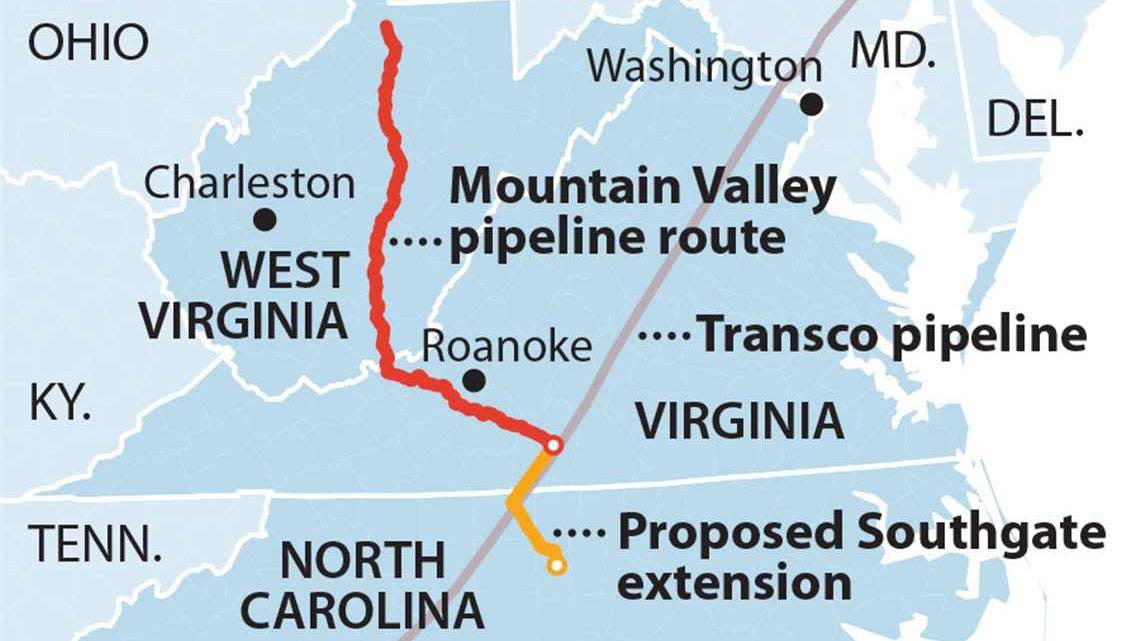Federal agency gives proposed NC gas pipeline a key approval. What to know.

Owners of the MVP Southgate natural gas pipeline project now have until June 2026 to finish building it, the Federal Energy Regulatory Commission said in an order issued Tuesday.
Previously, the project would have needed to be built and in service by June 18, 2023, a deadline its owners missed due to permitting problems in both North Carolina and Virginia amid ongoing questions about the fate of the Mountain Valley Pipeline mainline.
The extension allows the owners of MVP Southgate to move forward with building the interstate pipeline if they secure state-level permits. Without FERC’s order, they would have been unable to build the pipeline.
The 75.1-mile pipeline would be an extension of the 303-mile Mountain Valley Pipeline that will carry natural gas from West Virginia south. The Southgate extension would run into Rockingham and Alamance counties from the main pipeline in Pittsylvania County, Virginia.
At one point, both the mainline and the Southgate extension seemed stalled. But Sen. Joe Manchin, the West Virginia Democrat who is a staunch supporter of the fossil fuel industry, insisted that federal approval of the mainline be inserted into the Fiscal Responsibility Act of 2023.
That also revived the Southgate extension.
Who supports the pipeline?
In North Carolina, many Republicans, including Sen. Phil Berger, support MVP Southgate, arguing it is necessary for energy security and economic development.
If completed, MVP Southgate would become the second pipeline that carries natural gas to enter North Carolina. Supporters of the project have said the other pipeline, Transco, is full and that additional capacity is necessary for energy resilience.
Who opposes the pipeline?
Some Democrats, including Gov. Roy Cooper and U.S. Reps. Kathy Manning and Valerie Foushee, have said it poses too much risk for a state that is in the midst of a transition away from fossil fuels.
In a letter to FERC commissioners this week, Foushee and Manning joined with Virginia Democrats Jennifer McClellan and Bobby Scott to reiterate their opposition.
“If built, this pipeline would lock homes and businesses in the Southeast into the long-term use of natural gas during a critical moment in which we must transition away from fossil fuels to avoid the worst impacts of climate change,” the lawmakers wrote.
Methane, the main component of natural gas, is a potent greenhouse gas. It is better at trapping heat than carbon dioxide but is also shorter-lived in the atmosphere, leading some scientists to argue that curbing its use could more quickly lower greenhouse gases.
This is a developing story and will be updated.
This story was produced with financial support from the Hartfield Foundation and 1Earth Fund, in partnership with Journalism Funding Partners, as part of an independent journalism fellowship program. The N&O maintains full editorial control of the work.

